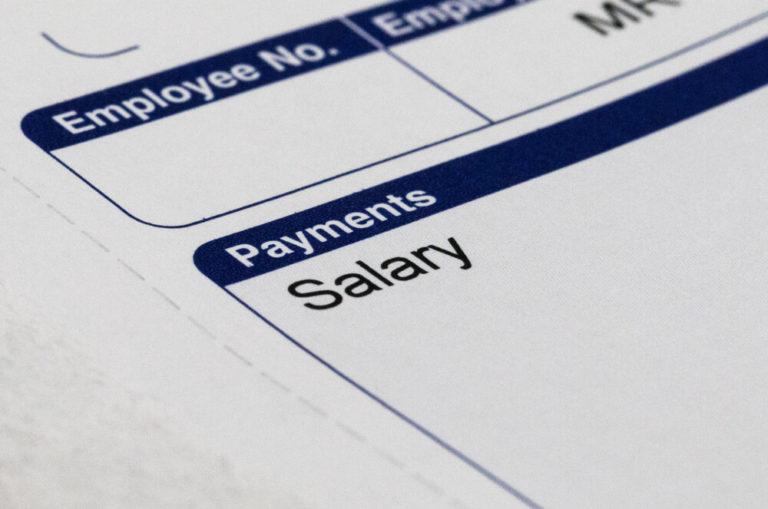
Navigating the world of financial planning can be complex, particularly when it comes to the diverse range of options available to safeguard your assets and plan for the future. One such option that merits consideration is a Trust Deed. This legally binding arrangement between you and your creditors can provide a structured pathway to manage your debt in a mutually beneficial manner.
A Trust Deed has its share of advantages and disadvantages depending on your unique financial situation and objectives. In these introduction paragraphs, we will provide an overview of the main pros and cons associated with entering into a Trust Deed to help you make a well-informed decision. Through gaining a clearer understanding of this financial tool, you will be better equipped to evaluate whether a Trust Deed is the right choice for your circumstances.
It is important to analyse each aspect of a Trust Deed thoroughly to ensure that it aligns with your specific financial needs and expectations. Armed with this knowledge, you can confidently determine the most suitable course of action to achieve your financial goals and alleviate the burden of outstanding debts. As you explore the world of Trust Deeds, always seek expert advice to guide you through this decision-making process.
Understanding Trust Deeds
A Trust Deed is a legally binding agreement between you and your creditors that primarily serves as a debt solution in Scotland. This agreement is managed by a licensed insolvency practitioner, who acts as your trustee while providing you with financial guidance throughout the process. In this section, we will provide a brief overview of the pros and cons of Trust Deeds to aid you in making an informed decision.
Pros of Trust Deeds:
- Legally binding: Trust Deeds are recognised by Scottish law, ensuring that your creditors will be unable to take further legal action once your Trust Deed has been agreed upon.
- Debt relief: Upon successful completion, any remaining unsecured debts are written off, giving you a fresh start.
- Fixed payments: You will have a clearly defined repayment plan based on what you can realistically afford, typically lasting for four years.
Cons of Trust Deeds:
- Asset ownership: If you are a homeowner or have significant assets, your insolvency practitioner may require you to release some equity in order to contribute towards the Trust Deed.
- Credit rating: Entering a Trust Deed will have a negative impact on your credit rating, which could affect your ability to get credit in the future.
- Possibility of bankruptcy: If your Trust Deed fails, your trustee may be obliged to petition for your sequestration (bankruptcy).
When you enter a Trust Deed, you are required to provide your insolvency practitioner with accurate and up-to-date information about your financial circumstances. They will negotiate with your creditors, aiming to lower your interest rates and write off a portion of your debt. Once the terms of your Trust Deed have been agreed upon, you will make a single, affordable monthly payment to your trustee, who will distribute these funds among your creditors.
It is essential that you seek financial advice from a qualified insolvency practitioner when considering a Trust Deed. They will assess your current situation and help you determine if entering a Trust Deed is the most suitable debt solution for you. Always remember that other debt solutions are available, such as Debt Arrangement Schemes or debt consolidation loans, and it is important to explore all available options.
Benefits of a Trust Deed
Financial Stability and Fresh Start
A Trust Deed offers you a way to achieve financial stability and a fresh start for dealing with unaffordable debt. By working with a debt expert, such as Moneynerd or Scott Nelson, they can assess your financial situation and determine if a Trust Deed is the right debt solution for you. Upon entering a Trust Deed, your disposable income will be taken into account to negotiate lower monthly repayments with your creditors, making it more manageable for you to repay your unsecured debts. The positive aspects of this include:
- A single, affordable monthly payment for your unsecured debts
- Reduced interest rates and charges on your debts
- Protection from legal action by your creditors
Maintaining Property Ownership
As a homeowner, one of the significant advantages of a Trust Deed is the ability to retain ownership of your property, provided you have a fair amount of equity. Janine Marsh suggests that, in certain cases, you may be asked to release some of your equity to contribute towards your unsecured debt repayments. However, this is usually a preferable option compared to other debt solutions that could force you to sell your home.
Additionally, if you own a property as tenants in common with another person, a Trust Deed allows you to keep your assets separate from your partner or co-owner in the event of financial difficulties.
Guard Against Seizures
Entering into a Scottish Trust Deed provides protection for you and your assets against creditor seizures, as long as you keep up with your agreed repayments. While the Trust Deed is active, your unsecured creditors must stop contacting you directly and cannot take any legal action against you, giving you peace of mind throughout the process.
Moreover, many Trust Deed providers pride themselves on offering no hidden fees, meaning you will have a clear understanding of the costs involved from the start.
By considering these benefits, you can confidently explore whether a Trust Deed is the right debt solution for your unique financial circumstances and make a well-informed decision.
Limitations of a Trust Deed
Possible Impact on Credit Rating
A major disadvantage of entering into a Trust Deed is the potential impact on your credit rating. A Trust Deed usually lasts for 4 years, during which time it will be recorded on your credit file. This may make it difficult for you to obtain credit or secure a loan in the future. Your credit rating will likely be negatively affected for at least six years – the duration of the Trust Deed, plus an additional two years. It’s important to consider how this may affect your ability to obtain a mortgage, buy a car, or take out a personal loan.
Keep in mind that the following may apply while in a Trust Deed:
- Credit reference agencies: Your Trust Deed will be registered with credit reference agencies that could make obtaining new credit difficult.
- Lenders’ policies: Some lenders may have policies against lending to people with Trust Deeds.
- High credit charges: If you do obtain credit during or after the Trust Deed, you may face high interest rates and charges due to the perceived risk.
Public Nature of Register of Insolvencies
Another limitation is the public nature of the Register of Insolvencies. A Trust Deed is a legally binding arrangement, and as such, your name will be added to the public register. This means that anyone can access your details, including your creditors, and this could have consequences for your privacy.
The following information will be included in the public register:
- Your name and address.
- The name of your Trustee.
- The date the Trust Deed was granted.
- The date the Trust Deed is due to end.
It’s important to remember that entering into a Trust Deed is a serious decision, and you must weigh the benefits of debt management against the potential consequences mentioned above.
Choosing Between a Trust Deed and Other Debt Solutions
When it comes to dealing with debt, there are several options available to you. In this section, we will compare a Protected Trust Deed with other popular debt solutions, highlighting their differences and helping you make an informed decision.
Comparing Protected Trust Deed and Other Solutions
- Protected Trust Deed
- Payment: You make affordable monthly contributions based on your income and expenses. The duration is typically 4 years.
- Mortgage: Your mortgage may be affected if there is equity in your property. Speak with a debt expert for specific advice.
- Trustee & Fees: A Trustee manages your Trust Deed, and their fees are deducted from your monthly contributions.
- Debts Included: Unsecured debts are included. Secured debts, such as your mortgage, are not.
- Debt Management Plan (DMP)
- Payment: You make reduced monthly payments based on your budget. There is no fixed duration.
- Mortgage: Your mortgage is usually unaffected.
- Fees: A third party may charge fees; some charities offer free DMPs.
- Debts Included: Unsecured debts are included. Secured debts are not.
- Sequestration
- Payment: You may have to make monthly contributions if you have surplus income. Sequestration lasts for 12 months.
- Mortgage: Your home may be at risk if there is equity.
- Fees: There are fees for sequestration, including a deposit payment and additional fees for the trustee.
- Debts Included: Most unsecured debts are included. Some secured debts may also be included.
| Debt Solution | Payment | Affects Mortgage? | Fees | Debts Included |
|---|---|---|---|---|
| Protected Trust Deed | Affordable monthly | Possible | Trustee fees from payment | Unsecured debts |
| Debt Management Plan | Reduced monthly | No | 3rd party charges | Unsecured debts |
| Sequestration | Surplus income-based | Yes | Deposit & trustee fees | Most unsecured debts |
Tax and HMRC Implications: In a Protected Trust Deed, any outstanding VAT, Council Tax, or other tax debts will generally be included. However, ongoing tax liabilities are not covered. In a DMP, HMRC debts can also be included, while in sequestration, most tax debts will be covered.
Remaining Debts and Discharge: Upon successful completion of a Scottish Trust Deed, you will receive a Letter of Discharge, and your remaining unsecured debts will be written off. In a DMP, you will repay your debts in full, while with sequestration, your remaining debts will be discharged after 12 months.
Assets and Windfalls: In a Protected Trust Deed, any windfalls must be declared to your trustee, who may use these funds towards your debts. Assets, such as vehicles, may be at risk if over a certain value. Both assets and windfalls are taken into account during sequestration. In a DMP, assets are generally not affected, and windfalls can be used to repay debts faster.
It’s crucial to understand all available options and discuss your specific circumstances with a debt expert before making a decision. Remember, the best solution for you will depend on factors such as the types of debt you have, your income, and your current financial situation.





